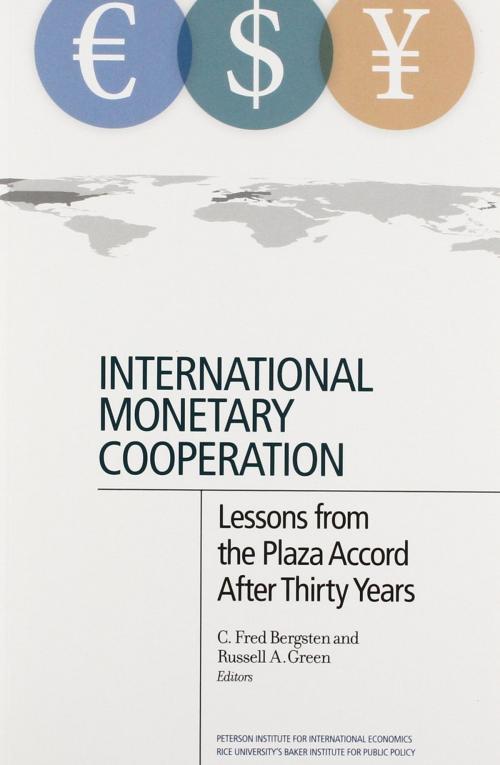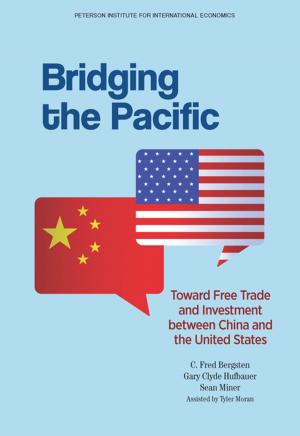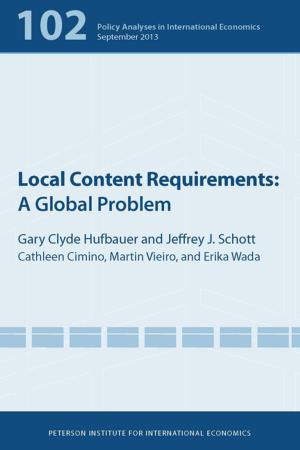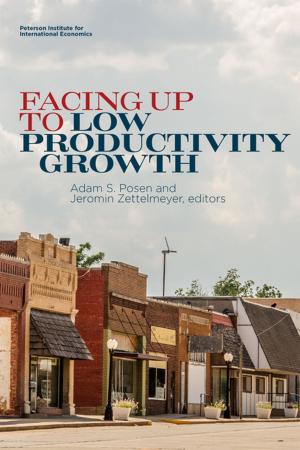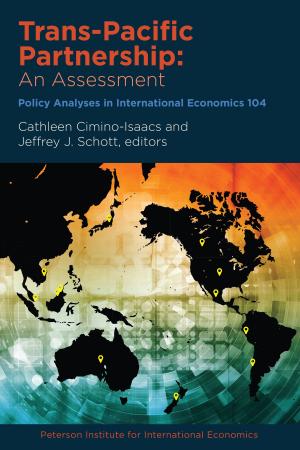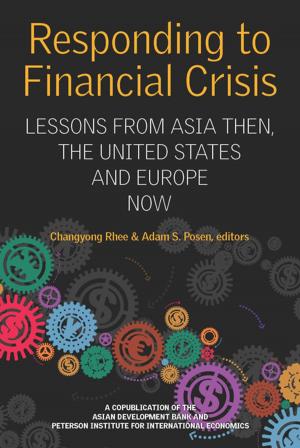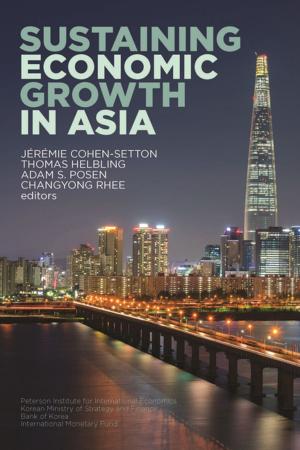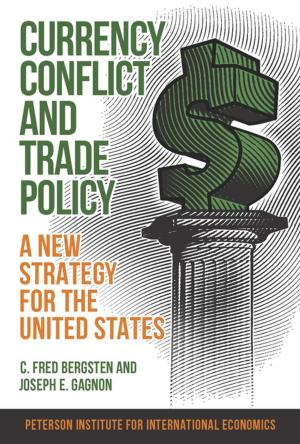International Monetary Cooperation
Lessons from the Plaza Accord after Thirty Years
Business & Finance, Economics, Money & Monetary Policy, Nonfiction, Social & Cultural Studies, Political Science, International, International Relations| Author: | ISBN: | 9780881327120 | |
| Publisher: | Peterson Institute for International Economics | Publication: | April 1, 2016 |
| Imprint: | Peterson Institute for International Economics | Language: | English |
| Author: | |
| ISBN: | 9780881327120 |
| Publisher: | Peterson Institute for International Economics |
| Publication: | April 1, 2016 |
| Imprint: | Peterson Institute for International Economics |
| Language: | English |
In September 1985, emissaries of the world's five leading industrial nations—the United States, Britain, France, Germany, and Japan—secretly gathered at the Plaza Hotel in New York City and unveiled an unprecedented effort to correct the largest set of current account and exchange rate imbalances that had ever threatened the world economy. The Plaza Accord is credited with sharply realigning exchange rates, significantly reducing current account imbalances, and countering protectionist pressures in the United States. But did the Accord provide a foundation for ongoing international financial stability and policy coordination? Or was it simply a unique one-time coincidence of national interests?
The Plaza experience continues to inform today's debates about the limits and possibilities of international monetary cooperation. In late 2015, leading policymakers and economists—including those who were involved in the Accord's design, negotiation, and implementation—held a Plaza Retrospective conference at the Baker Institute for Public Policy to evaluate the Accord's legacy and how its collaborative spirit can be applied today. This volume presents their views and analyses to provide guidance for a time when the world again faces the prospect of currency disequilibria, growing imbalances, trade policy reactions, and thus uncertainty for both the global economy and world politics.
Data disclosure: The data underlying the analysis in this volume are available. The data used in chapter 14 are taken directly from William Cline's Policy Briefs 15-8 and 15-20, with the exception that they have been manipulated with a key assumption stated in the chapter.
In September 1985, emissaries of the world's five leading industrial nations—the United States, Britain, France, Germany, and Japan—secretly gathered at the Plaza Hotel in New York City and unveiled an unprecedented effort to correct the largest set of current account and exchange rate imbalances that had ever threatened the world economy. The Plaza Accord is credited with sharply realigning exchange rates, significantly reducing current account imbalances, and countering protectionist pressures in the United States. But did the Accord provide a foundation for ongoing international financial stability and policy coordination? Or was it simply a unique one-time coincidence of national interests?
The Plaza experience continues to inform today's debates about the limits and possibilities of international monetary cooperation. In late 2015, leading policymakers and economists—including those who were involved in the Accord's design, negotiation, and implementation—held a Plaza Retrospective conference at the Baker Institute for Public Policy to evaluate the Accord's legacy and how its collaborative spirit can be applied today. This volume presents their views and analyses to provide guidance for a time when the world again faces the prospect of currency disequilibria, growing imbalances, trade policy reactions, and thus uncertainty for both the global economy and world politics.
Data disclosure: The data underlying the analysis in this volume are available. The data used in chapter 14 are taken directly from William Cline's Policy Briefs 15-8 and 15-20, with the exception that they have been manipulated with a key assumption stated in the chapter.
